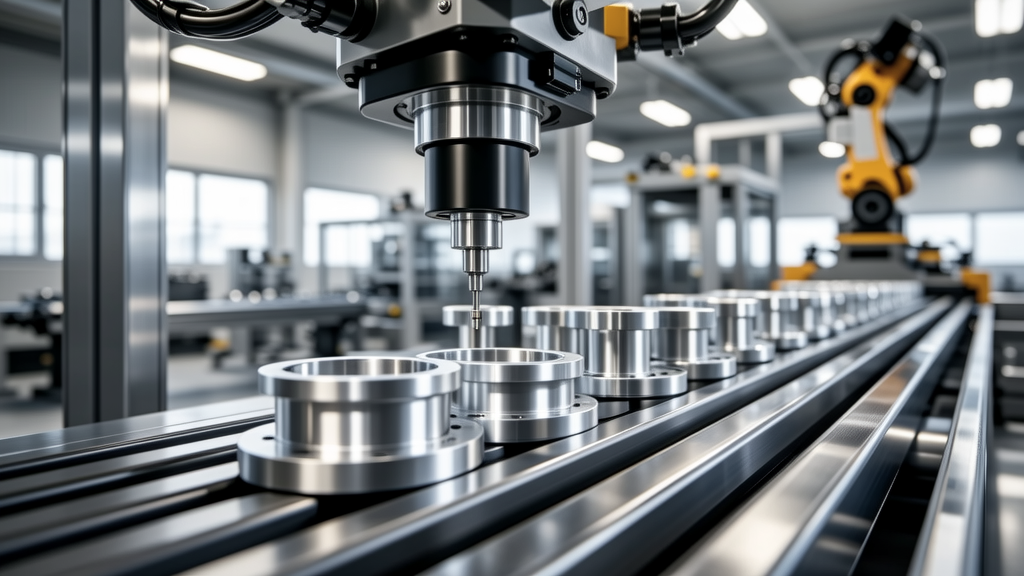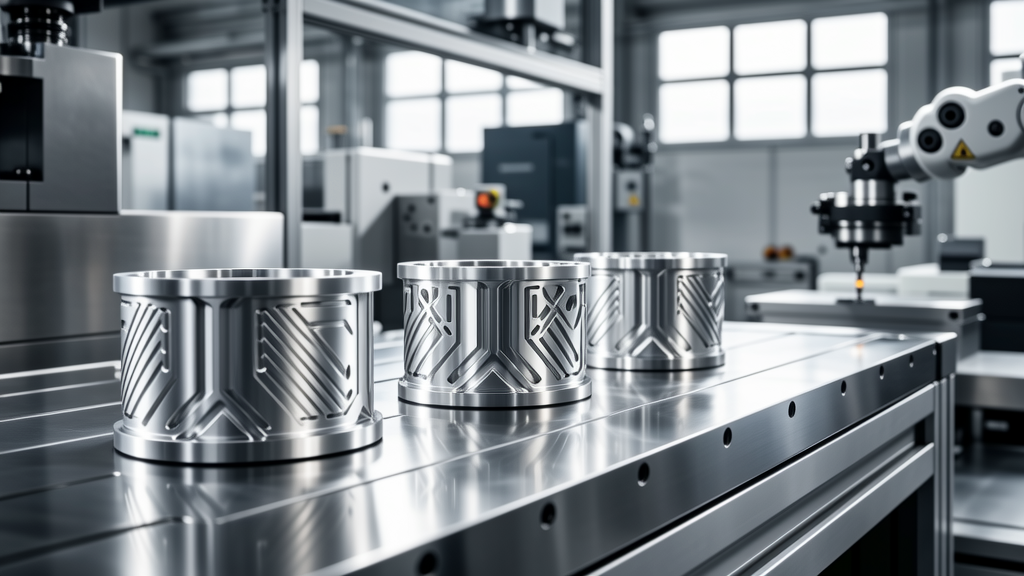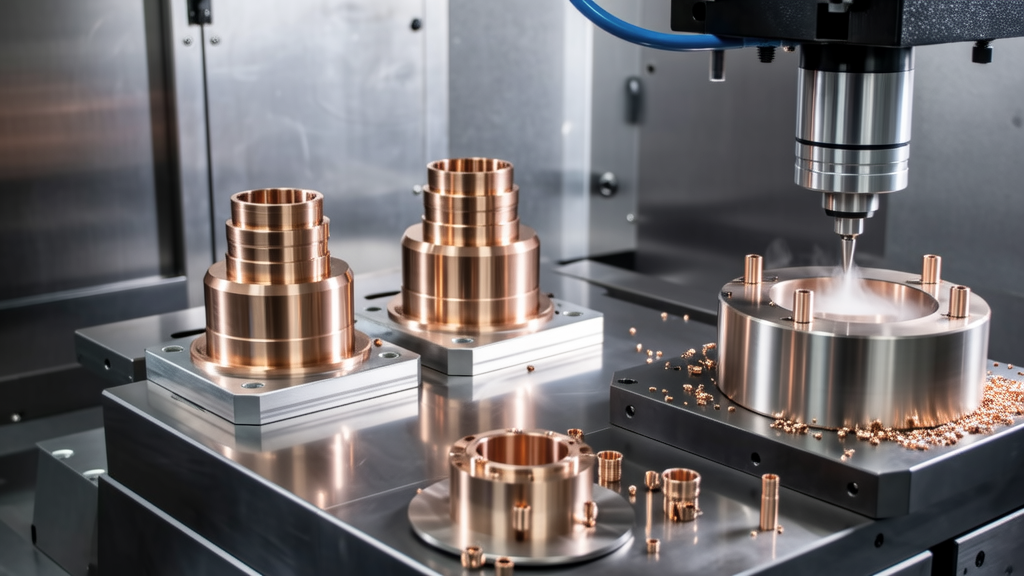When you’re in the manufacturing business, you know that product quality can make or break your reputation. If you’ve ever struggled with quality control or had to deal with costly rework, you’re not alone. Many companies are increasingly turning to advanced CNC (Computer Numerical Control) equipment, especially from places like Shenzhen, to elevate their production standards. Let’s explore how this technology can transform your product quality and give you an edge over the competition.
The Role of Precision in CNC Machining
Precision is crucial in CNC machining, and advanced Shenzhen equipment excels in this regard. For instance, I once worked on a project where we switched to using a newer CNC milling machine. The results were astounding—our tolerance levels improved significantly, reducing defects from around 8% to less than 2%. This change meant we not only saved costs associated with rework but also increased customer satisfaction, as they received near-perfect products.
So, why does precision matter? Well, when parts fit together correctly, the overall performance of the final product improves. This principle is especially critical for components in industries like aerospace and automotive, where safety and reliability are non-negotiable. Advanced CNC machines feature sophisticated sensors and software that can track and adjust processes in real-time, ensuring consistent quality throughout the manufacturing run.
Efficiency and Speed: A Game Changer
Another key advantage of advanced CNC equipment is its efficiency. Have you ever found yourself waiting for a machine to finish a simple task? It can be frustrating and costly. When my company invested in modern CNC technology from Shenzhen, we noticed a dramatic reduction in cycle times. The speed improvements translated into us completing orders faster, allowing us to take on more projects without compromising quality.
Consider this: advanced CNC machines integrate features such as automated tool changing and smart scheduling. This helps minimize downtime and maximizes usage, ensuring every moment is productive. A study from the National Institute of Standards and Technology found that manufacturers leveraging high-performance CNC systems experience productivity gains of 20% or more. This means that faster production could lead to quicker delivery times, giving you a competitive advantage in a fast-paced market.
Material Capability and Versatility
Using advanced CNC machining enables manufacturers to work with a broader range of materials. In my experience, I had a client who specialized in medical devices. They needed parts made from various materials, including plastics and metals, to meet regulatory standards. Thanks to our state-of-the-art machines, we were able to quickly adapt our processes to handle different materials without losing quality.

This versatility is part of what makes modern CNC equipment invaluable. These machines can switch between machining processes seamlessly, whether it’s turning, milling, or laser cutting. This adaptability not only saves time but also reduces costs associated with switching setups for different projects. Additionally, the ability to produce complex geometries means that designers can push the boundaries of what’s possible, leading to innovative products that stand out in the market.
Quality Assurance through Technology
I cannot stress enough the importance of quality assurance in manufacturing. Advanced CNC machines come equipped with built-in quality control features that can detect potential issues before they become major problems. For example, if a part is not adhering to specified dimensions, the machine can halt the process and alert the operator, allowing for immediate intervention.
This predictive quality assurance is a game changer. Many industries, including aerospace, automotive, and medical devices, require stringent quality checks. The technology enables manufacturers like us to meet those requirements efficiently. A report from the American Society for Quality noted that companies using integrated quality control systems in their CNC processes reported a 30% decrease in product recalls—definitely a number worth considering.
Conclusion
With the advancements in Shenzhen’s CNC machining technology, the impact on product quality is clear and powerful. Whether it’s precision that cuts down defect rates, efficiency that speeds up production, versatility that allows for different materials, or integrated quality assurance that boosts reliability, advanced CNC equipment is reshaping what manufacturers can achieve. If you’re looking to improve your production processes, consider embracing these innovations—your product quality is bound to benefit, and so will your bottom line.
What makes precision so important in CNC machining?
Precision in CNC machining is crucial because it directly affects the fit and function of manufactured parts. When parts are created with high precision, defects are minimized, resulting in products that meet strict quality standards. I’ve seen cases where improving precision reduced defect rates from 8% to less than 2%, enhancing overall customer satisfaction.

The high-performance CNC machines from Shenzhen feature advanced sensors and software that track processes in real-time, making adjustments as necessary. This means that you can rely on consistency and accuracy throughout the production run.
How does advanced CNC equipment improve efficiency in manufacturing?
Advanced CNC equipment significantly boosts efficiency by reducing cycle times. For example, when my company upgraded to newer machines, we noticed that throughput increased substantially, allowing us to take on more projects without compromising quality. With features like automated tool changing and smart scheduling, downtime is minimized, and productivity is maximized.
The National Institute of Standards and Technology found that manufacturers utilizing advanced CNC systems often experience productivity gains of 20% or more, which can be a game changer in today’s fast-paced market.
Can advanced CNC machines handle different materials?
Yes, one of the great advantages of advanced CNC machines is their versatility in working with various materials. I’ve worked with equipment that seamlessly adapts to machining not only plastics but also metals, which is essential for making parts that meet strict regulatory requirements.
This capability allows manufacturers to respond quickly to changing demands and produce complex geometries that can lead to innovative products. The ability to switch between different machining processes saves time and reduces costs.
How do modern CNC machines ensure product quality?
Modern CNC machines are equipped with built-in quality control features that can detect issues during production. For instance, if a part starts to stray from specified dimensions, the machine can halt operations and alert the operator instantly, preventing major problems down the line.
Integrated quality control systems can lead to as much as a 30% reduction in product recalls, according to statistics from the American Society for Quality, making them essential in industries that require stringent quality checks.



